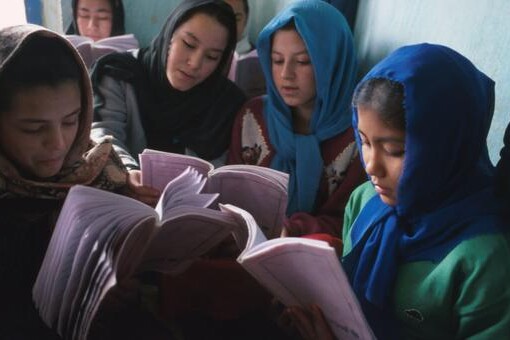The international community must step up efforts to eliminate nuclear weapons in the wake of the latest firing of a ballistic missile by the Democratic People’s Republic of Korea (DPRK), a senior UN official told the Security Council on Wednesday.
Assistant-Secretary-General Khaled Khiari briefed ambassadors on the UN’s response to the incident and its concern over the humanitarian situation in the country, more commonly known as North Korea.
The long-range ballistic missile was launched from the northern province of Jagang on Monday morning, local time, and covered a range of 4,500 km, reaching roughly 970 km at its height.
This marked the first time the DPRK has flown a missile over Japan since 15 September, 2017.
UN chief’s condemnation
Mr. Khiari recalled that the UN Secretary-General has strongly condemned the launch.
“This was a reckless act and a clear violation of relevant Security Council resolutions. This launch risks triggering a significant escalation of tensions in the region and beyond. It is of serious concern that the DPRK has again disregarded any consideration for international flight or maritime safety,” he said.
UN chief António Guterres urged the country to immediately cease any further destabilising acts.
He has also appealed for the DPRK to resume dialogue towards the denuclearization of the Korean Peninsula.
New law a concern
Mr. Khiari spoke about other troubling developments as North Korea “launched systems with the apparent characteristics of short-range ballistic missiles” on four recent occasions.
Last month, the International Atomic Energy Agency (IAEA) reported that there were indications that the Punggye-ri Nuclear Test Site remained active and prepared to support a nuclear test.
The IAEA continued to observe construction activities at the Yongbyon nuclear facilities, as well as indications that the five-megawatt nuclear reactor was operating.
Furthermore, the UN Secretary-General has also expressed deep concern over the DPRK’s adoption of a new law on nuclear policy.
“While some States continue to rely on nuclear weapons in their security policies, nuclear weapons pose an existential threat to humanity. Their continued existence heightens the risk of unintended escalation or miscalculation. We must strengthen our efforts to eliminate nuclear weapons,” said Mr. Khiari.
Allow humanitarian aid
At the same time, the UN chief also remains concerned about the humanitarian situation in the DPRK, he added.
The UN system, in coordination with international and aid partners, is ready to send staff and assistance to help the Government address medical and humanitarian needs, including those related to the COVID-19 pandemic.
“To allow for a timely and effective response, we reiterate our call for the unimpeded entry of international staff and humanitarian supplies. We also acknowledge the work of Member States toward resolving the banking channel for humanitarian operations,” said Mr. Khiari.
He concluded by underlining that the Council’s unity in this matter “is essential to ease tensions, overcome the diplomatic impasse and avoid a negative action-reaction cycle.”




